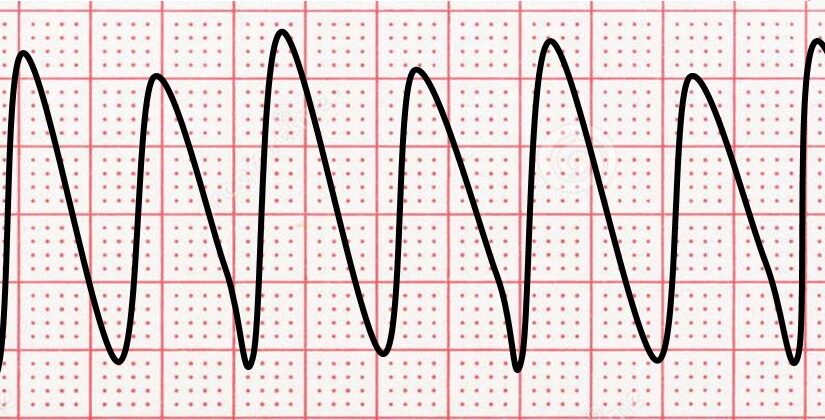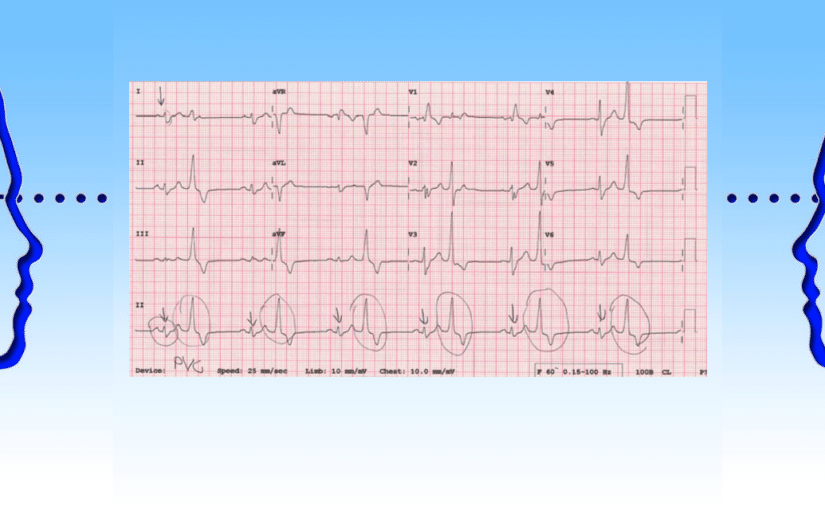News & Updates
Learning to Interpret 12-Lead ECGs – The Basics
An ECG is one of the most efficient and most effective tests to evaluate the heart, making ECG interpretation a vital diagnostic skill in any medical setting. ECGs are used when diagnosing a wide range of heart issues, including myocardial infarction, ventricular fibrillation, or bundle branch blocks. An ECG is comprised of 12 leads that […]
Read More
The Difference Between Ventricular Tachycardia and Ventricular Fibrillation
Ventricular tachycardia and ventricular fibrillation are two serious cardiac arrhythmias that can often lead to death. Because of the critical nature of these abnormal heart rhythms, it is essential to be able to identify each on an ECG or rhythm strip. In this article, we’ll cover the differences between Vtach and Vfib, as well as […]
Read More
What Is Ventricular Fibrillation? Symptoms, Causes, & Treatments
Ventricular fibrillation, or Vfib, is an abnormal cardiac rhythm where the electrical conduction in the ventricles goes wild, causing 350 to 600 impulses per minute. As a result, the ventricles quiver instead of contracting fully, preventing blood from pumping in the body leading to death. The quickest and most painless way to diagnose ventricular fibrillation is […]
Read More
What are Arrhythmias?
An arrhythmia is simply an abnormality of the rhythm of the heart. More specifically, it is an abnormality of cardiac impulse formation or conduction. That means that the areas of the heart that produce impulse may not function correctly leading to heart rhythms being too fast, too slow, or even cease. Additionally, an arrhythmia may […]
Read More
4 Great Ways to Practice EKG Interpretation
EKG interpretation (or ECG interpretation) is a vital diagnostic tool that helps identify various life-threatening cardiac problems. Executive Electrocardiogram Education was designed to help medical students and medical practitioners in all aspects of medical care develop the skills at ECG interpretation that allow them to serve their patients better and advance in their field. It’s […]
Read More
Identifying Normal Electrocardiogram Intervals with Examples
ECGs, or electrocardiograms, help medical professionals read the electrical activity of a patient’s heart. ECGs are simple yet essential machines that allow nurses, nurse practitioners, doctors, and other healthcare professionals to quickly read a patient’s cardiac rhythm and identify other cardiac issues. In this article, we’ll take a look at what normal electrocardiogram intervals are […]
Read More
Right Ventricular Hypertrophy and the ECG
Abbreviations: ECG – electrocardiogram RAD – right axis deviation RVH – right ventricular hypertrophy ECGs are good screening tests to look for certain cardiac abnormalities. There are distinct ECG criteria identifying right ventricular hypertrophy (RVH), which can be easily memorized and ascertained with a little knowledge of cardiac anatomy and electrical conduction properties. Below, I […]
Read More
Understanding ECGs – Define, Deduce, and Diagnose (Part 1)
What is the best way to understand an issue? I try to define the terms, deduce how everything fits together, and then make a diagnosis. Reading electrocardiograms (ECGs; EKGs) is no different – Define, Deduce, and Diagnose. As basic as this may sound, interpreting an EKG takes knowing the basic definitions of the waveforms, understanding […]
Read More
Get Lifetime Access To Our Entire LibraryNow Only $49!
Get instant access to over 130 videos, 97 quizzes, 40 practice ECGs, and 2 exams that will teach you to read ECGs like a cardiologist. That’s over 16 hours of self-paced online video courses for just $49!








